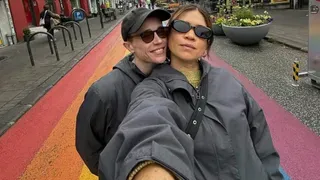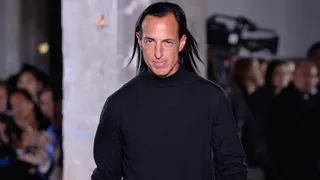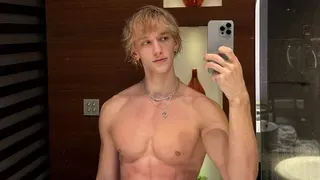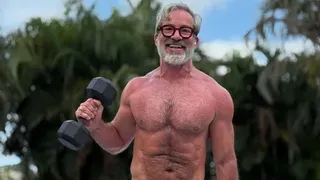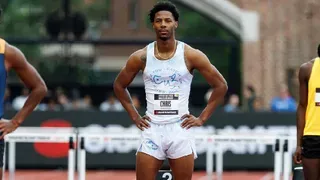June 5, 2008
The comeback
Michael Wood READ TIME: 5 MIN.
Coming out with a new album, a new sound, and a new look isn't that unusual in the music business, but it's a big undertaking for Maine-based musician Cathy Worthley. That's partly because she works in the less than quixotic field of folk music, but mostly because for the first 20 years of her professional music career, Cathy was George.
After making her official debut as Cathy last February, Worthley is getting back on the road and back in the studio. Her next album is due out this summer, and her many upcoming appearances include sets at the New England Trans Pride Rally on June 7 and Boston Pride's Out@Downtown Crossing on June 10. Although the prospect of restarting her career is daunting, Cathy wouldn't have it any other way.
"I had been trying to push my music into something else," says Worthley, "just like what I was trying to do to my life. So once I got rid of the stuff I didn't believe in, I got me back and I got my music back."
Music has been a part of Worthley's life since her teens, when her parents insisted that she and her siblings learn to play an instrument. Taking to the guitar like a duck to water, Worthley was soon playing out.
"I started gigging professionally before I got my driver's license," she recalls. "I started playing rock and roll at American Legions and high school dances. It's been with me my whole adult life."
"I once told my high school guidance counselor I wanted to be a musician, a humanitarian, or a race car driver. An odd combination, especially since I'd never been in a stock car in my life. But I've done two out of the three.'
At that time Worthley didn't have the words to say that she wanted to be a woman, although she'd felt a difference and discomfort "since before I could talk. I knew something had gone horribly wrong. It bothered me growing up and through my twenties and thirties."
But it would take several years, and some failed marriages, before Worthley faced her gender identity issues head on. She first began thinking seriously about transitioning 12 years ago - right before getting married. "It wasn't the right time," Worthley sighs. "I just told myself it was something that was never going to be, because of expectations and commitments to other people, and my own embarrassment."
More than a decade later, Worthley dryly notes that stifling her gender identity was not a good foundation for a marriage. To add fuel to the fire, her then-wife was also her musical partner. It sounds like a set-up for a musical tragedy; but Worthley, who has the down-to-earth sense of humor of someone who thrived on the lifestyle of a traveling musician, is now able to describe the situation with amusement.
"If you have a relationship with a musician in it, that's trouble," she laughs. "But imagine two musicians. That makes the odds less in your favor. Then throw in transgender on top of that and you're just screwed."
Nevertheless, the husband and wife team kept going for eight years, both domestically and personally. But when the folk festival circuit hit hard times in the wake of 9/11, that put enormous strain on their marriage. "Before 9/11, it was 140 shows a year. Then it went down to 20," Worthley explains. Their professional problems eventually led to a complete, and bitter, dissolution of their relationship.
Alone and forced to take a job as a prison guard to make ends meet, Worthley became depressed and wrestled with the thought of suicide. "Once everything else was gone," says Worthley soberly, "it was either end it all, or just do what I've always known I needed to do to be happy. And when you get to that point, well, the alternative really sucks. So you do it. At that point it's a no brainer."
After doing "a lot of research and a lot of crying," Worthley began hormone treatment. She also switched to a less stressful day job managing an adult bookstore, an environment that proved not just conducive to playing out at night but to transitioning. "My bosses think that me being transgender is good for business," Worthley giggles. "I don't know what the logic is there, but I don't ask."
In fact, her employer's warm acceptance of Worthley's transition is in line with the generally positive reactions she's been getting since she began living a more authentic life. "My sons have been so supportive," she says with pride, "and my sisters have been great. One of my sisters just said, 'Well good, you'll be easier to shop for at Christmas!"
Less supportive reactions have come from further out in her circle of friends, like a musician Worthley knows from the road. Because they'll be sharing a bill in the fall, Worthley sent an e-mail explaining that she was now Cathy. "What I got back was, 'We'll be praying for you,'" Worthley snickers. "I guess we won't be going out for beers after the show."
After taking a year off from playing out, Worthley has moved slowly into her new identity on stage. "I wasn't really sure how to handle it," she says. "When you have over 20 years experience connected to your name, it's scary to change. For a while I kept my look androgynous and called myself Cat. I thought a gradual transition would be more comfortable for people in the audience who knew me, but maybe it was really more comfortable for me.
"It was my younger son and his friends who kept saying I had to just get out there and be myself. And they were right. It felt great to be on stage and say 'Hi, I'm Cathy."
Now Worthley feels more comfortable on stage than ever before, even though the hormone-fueled changes in her singing voice have been a source of anxiety. "I found out I've been singing wrong all these years," she admits. "And used to get away with it, but it won't work anymore. So I had to relearn the mechanics of my instrument. My singing voice still sounds odd to me."
Worthley is looking forward to playing at Northampton's Trans Pride rally ("I'm driving three hours for a ten minute set, so what does that say?") although she admits to some ambivalence about trans issues.
"I've been invited to some conferences where they wanted a trans voice represented," Worthley reveals, "and I don't think I say what I'm supposed to say. I don't get invited back.
"I think trans people do have specifically trans problems, but mostly we have people problems. It's really useful to be part of a counterculture, but we have to live in the real world. It's not that I'm not supportive and grateful for the trans community, but I need to be out in the real world.
"I put myself in a box for the better part of my life, and I'm not going to hide anymore."
Michael Wood is a contributor and Editorial Assistant for EDGE Publications.

